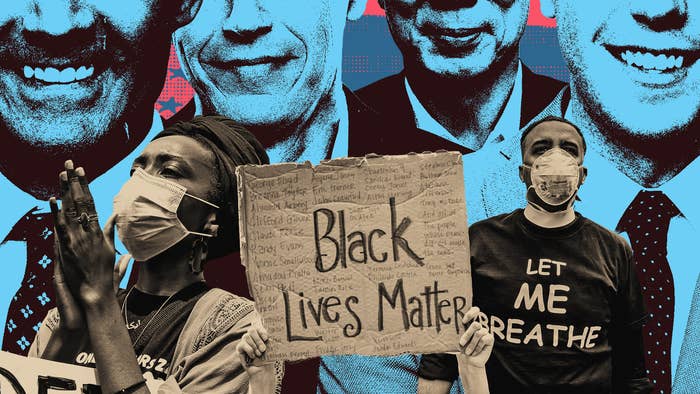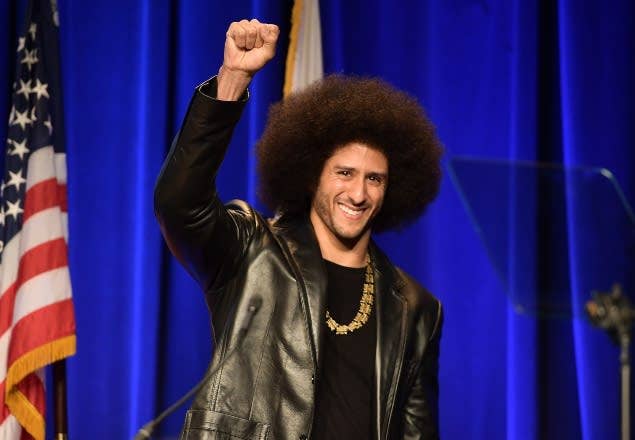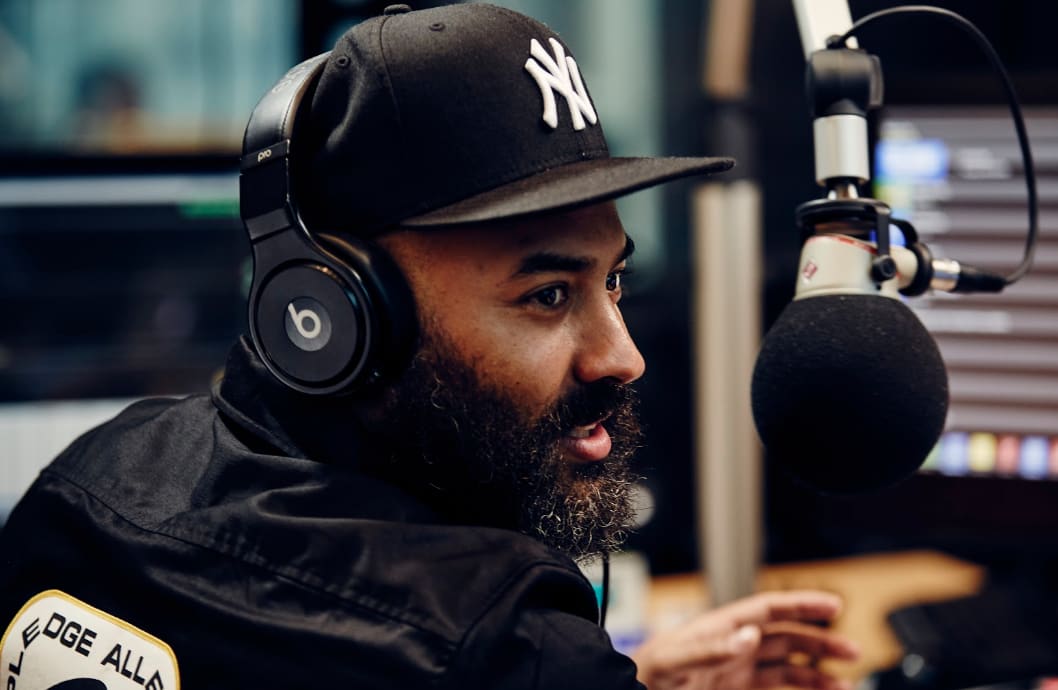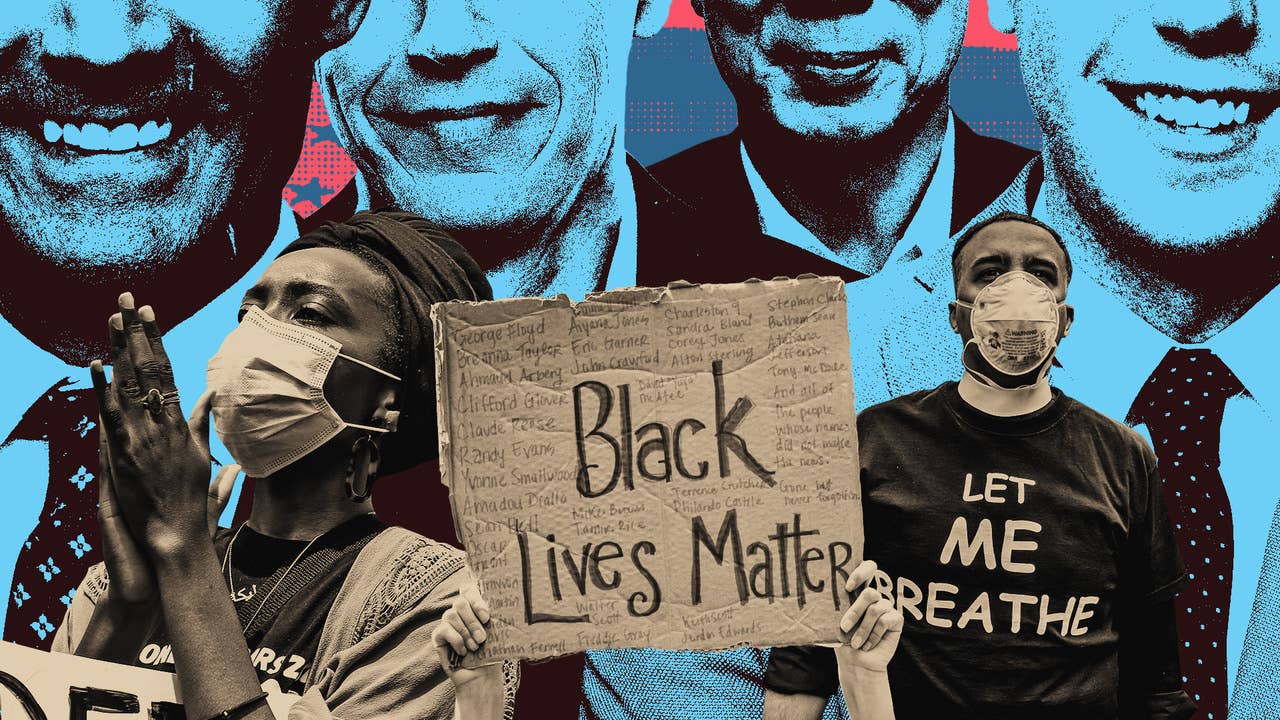
George Floyd was murdered on May 25, and for days corporate America at large was silent. Walmart was still promoting home decor and Warner Music was sending Taco Tuesday reminders. This was the same respect given to Ahmaud Arbery and Breonna Taylor following their deaths in February and March, respectively. By May 29, grounds quaked from protests stomping across the nation, and, as is often the case in American history, Black women gave that movement a voice that could cut through the almost inhumane corporate silence.
On May 29, a simple phone call would morph into a campaign started by two Black music industry veterans, Jamila Thomas, senior director of marketing at Atlantic Records, and Brianna Agyemang, senior artist campaign manager at Apple-owned music talent development firm Platoon. (Agyemang also used to work at Atlantic Records.) Two days later, they shared a message with the world that would grind the multi-billion-dollar music industry to a halt: #TheShowMustBePaused. One of the movement’s first acts was calling for people to disrupt the music industry by not reporting to work on June 2. Before you knew it, the message spread across the world, and four days after a simple phone call, two Black women did what no one else could: made corporate America care.
Or did they?
Agyemang and Thomas’ aim was to "hold the industry at large, including major corporations and their partners who benefit from the efforts, struggles and successes of Black people, accountable,” according to the official statement of the Show Must Be Paused. But somehow the music industry and corporate America as a whole interpreted this as a way to electric slide into the “right side of history” category. Many online felt that corporate America placed a black box in its profile to show quasi-solidarity with Black Lives Matter on what became #BlackoutTuesday.
But why now? Why didn’t Walmart say “Black Lives Matter” when a police officer killed John Crawford III in an Ohio Walmart in 2014 like it did weeks after Floyd’s death? Why didn’t NASCAR ban Confederate flags on cars after Sandra Bland died in police custody in 2015 like it did weeks after Floyd’s death? Why do Black lives finally matter enough for companies to make changes unprecedented in their history?
The reasons are many, but they might start with any company’s bottom line.

There’s a financial incentive for companies to support Black people. Back in 2018, Nike aired a commercial supporting Colin Kaepernick following the controversy of the former NFL star kneeling during the national anthem to protest police brutality. Angry Americans burned Nike apparel and pledged to boycott the brand. What happened? Nike became $6 billion more valuable over the next three weeks as its stock price rose five percent.
These times are no different. The company’s share price recently rose more than a percent, from $95.22 to $96.39 (as of June 11), in just one 24-hour period directly following its June 11 announcement of formalizing Juneteenth as an annual paid holiday for its U.S. employees. Around the same time, Nike’s biggest rival Adidas was feeling the opposite effect. On June 5, a coalition of 200 Adidas employees at the company’s North American headquarters in Beaverton, Oregon, staged a sitout to protest racial inequalities at the footwear empire whose workforce reportedly less than 5% Black. As a result, Adidas’ stock price dropped by over 15% from $149.96 at 11 a.m. on June 5 to $128.76 at 1 P.M. on June 12.
Spotify’s stock price rose by nearly 4% from the previous day on June 2, when the company’s Black Lives Matter playlist drew almost 6 million users. Also, Spotify takes a 30% cut of all streaming revenue, so a 1,000% increase in subscribers to a playlist in one day could equate to millions of dollars the company would’ve otherwise not accumulated in that period.
Despite brands and corporations not actually being people, evidence shows that they might not have much choice in the matter of standing aside on issues such as racism, police brutality, and the safety of Black lives. A 2019 survey found 74% of consumers think brands should take a stand, while data released this past May showed that most people agree that even if speaking up on issues like Black Lives Matter is politically divisive, it is worse to say nothing at all.
“While there are real issues that are transpiring, let’s not forget that people follow trends all of the time. For me, a lot of it is no different than a TikTok challenge,” vice president of A&R at Asylum Records and Complex’s Everyday Struggle host Wayne “Wayno” Clark says.
"Look at your corporation in the mirror and say, ‘Have we actually done things that can change the Black community, like providing jobs? In what ways can our corporation participate in that economic change that needs to take place in American society?” - Ebro Darden
Posting a black box on social media to show solidarity becomes performative when there’s no action behind it. It leaves the impression to many that a company believes it’s done its part in supporting Black people. Apple Music's global editorial head of hip-hop and R&B, Ebro Darden agrees, telling Complex that true change comes from corporations asking themselves those uncomfortable questions. “Look at your corporation in the mirror and say, ‘Have we actually done things that can change the Black community, like providing jobs? In what ways can our corporation participate in that economic change that needs to take place in American society?” Darden says.
Amazon released a statement on May 31 about standing in solidarity with the Black community only a few months after firing a Black employee—Christian Smalls—who led a walk-out to protest the company’s lack of transparency and sanitation at its warehouses during the pandemic. Internal memos leaked in April, with Amazon general counsel David Zapolsky describing Smalls as “not smart, or articulate,” and by June the world’s supposed to believe Amazon cares about social change for Black people? The same company that had no idea how many police departments were using the suspiciously racist facial recognition software it sold them to arrest people in February was calling for the end to “the inequitable and brutal treatment of Black people” by late May?
“Some people I know are just using the tweet to make sure they don’t get canceled by Black culture, [and they] are definitely getting a side-eye from me,” says Gia Pepper, co-host of BET’s Black Coffee. “OK, this is nice, but did you donate? Did you make sure you are sharing information, petitions, or local police station numbers to make sure Breonna Taylor’s case is the only thing they’re hearing about until the people who killed her are arrested?”
Of the mixed bag of corporate responses, Apple Music had one of the more thoughtful ones. During the June 2 call to participate in #BlackOutTuesday, the streaming service replaced its “For You,” “Browse,” and “Radio” sections with a message about the company standing with the Black community with an accompanying link that sent users to a Beats 1 playlist showcasing Black artists. Darden explains these initiatives began after Agyemang and Thomas’ plans reached his email and his team communicated its desire to be part of the movement to Apple Music chief Oliver Schusser and Apple Music’s global senior director of editorial, Rachel Newman.
“Apple’s senior vice president of internet software, Eddie Cue, stepped in and pushed it even farther, to where it was something everyone saw. It was something all ends of the business supported,” Darden says.

Republic Records showed one of the most shocking corporate signs of Black solidarity by banning the term “urban” within the label. Peppers has spent years in what some may refer to as “urban media” and has observed the deleterious effects the term can have on a Black artist’s career. “When you put the term ‘urban’ [on something], it sort of lessens the expectations to have mainstream appeal,” she says. Darden, who’s been in the radio business since 1990, has firsthand experience with the racist implications of the term. “In the radio world, the term ‘urban’ was used so white advertisers would feel more comfortable advertising with predominantly targeted radio stations.”
The move is already affecting Black lives. Days after Republic Records’ announcement, the Recording Academy said it would replace the Best Urban Contemporary Album category at the Grammys with the new Progressive R&B label. To the Recording Academy, “progressive R&B” means R&B music that samples from different genres like pop, dance, and country. To a Black artist like Baby Rose, it’s musical redlining: an effort to keep Black artists from being recognized in those different genres by placing any music they make into one category.
“Progressive R&B is like ‘other.’ They would rather put all of the artists completely out of that small box of what R&B has become in this industry in a subcategory of ‘progressive R&B’ than just giving them their just due. I don’t fuck with that at all. I don’t know who told them that was a good idea,” Baby Rose says. “Keep all of that shit. If you’re going to continue to profile people, if you’re going to continue to expect free work from Black creatives and not cut a check or open your purse, and you’re doing it just for show and fake solidarity? Keep that shit.”
"If you’re going to continue to profile people, if you’re going to continue to expect free work from Black creatives and not cut a check or open your purse, and you’re doing it just for show and fake solidarity? Keep that sh*t." - Baby Rose
It appears some companies have either had those uncomfortable conversations Darden mentioned, or are ready to. Warner Music Group is looking to hire a global head of diversity & inclusion who will be responsible, in part, for maintaining a transparent progress report on how well the company is doing in terms of diversity. The company is also creating the WMG Diversity & Inclusion Council, composed of “a broad group of people from across the global business” tasked with aligning WMG’s business with its Diversity & Inclusion agenda, according to a statement from WMG.
Apple set up a Racial Equity and Justice Initiative with a $100 million commitment to the company increasing spending at Black-owned partners in its supply chain, hiring more Black talent, working with HBCUs, and launching a camp for Black developers. Google, Facebook, Amazon, and a number of other companies have made their own commitments to improving diversity. While these efforts are helpful, truth be told, every corporate response can be categorized as “to be determined,” because the soul of Black people has been malnourished from dining on empty promises for centuries, and it’s time it stopped.
Let’s take the campaign in 2015, following that year’s Oscar nominations, which saw only white actors nominated in acting categories. The same racial disparity in nominations would appear for the second consecutive year in 2016, but this time, we were fed more promises after the Academy of Motion Pictures, Arts and Science unanimously voted to double “the number of women and diverse members of the Academy by 2020,” following the second consecutive year of all-white acting nominees at the Oscars. Diversity and inclusion advocate April Reign’s #OscarsSoWhite hashtag catalyzed the national response, and this year the academy reportedly reached its goal.

“Rarely do corporations specify like that, because they want to give themselves some wiggle room. They want to ensure they can meet whatever parameters are out there and it won’t be a heavy lift for them. That’s why it’s imperative to us as consumers to hold these people’s feet to the fire,” Reign says.
We have to make sure Sephora stocks at least 15% of its shelves with products from Black-owned businesses, as the company promised. We have to make sure to find out which, if any, nonprofits helping Black-owned small businesses receive grants from Target, as the company promised. We need more Black people in positions of power ensuring these changes are enforced.
“Did you make sure you are sharing information, petitions, or local police station numbers to make sure Breonna Taylor’s case is the only thing they’re hearing about until the people who killed her are arrested?” - Gia Peppers
As the protests slowly leave national news, we have to make sure these companies understand attention is not a victory, a donation announcement is not impactful change, and a blacked-out Instagram post is not progress.
“At this point, they’re trying to make it seem as if the fire is dying down and this is just a moment in time. But truth be told… this is a revolution and an awakening in the minds of all people,” Rose says.
The revolution will not be a moment. The revolution will be a reality.

